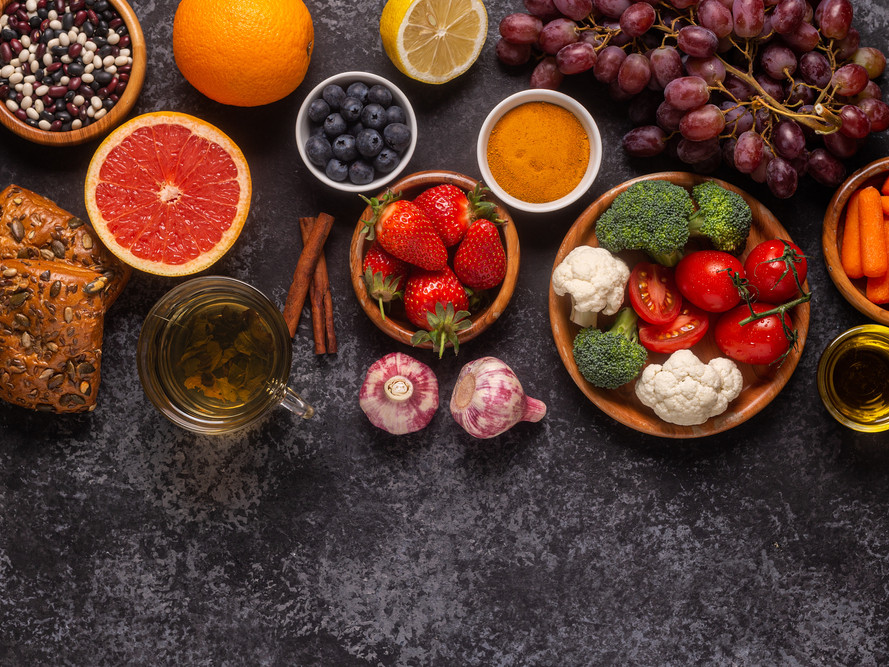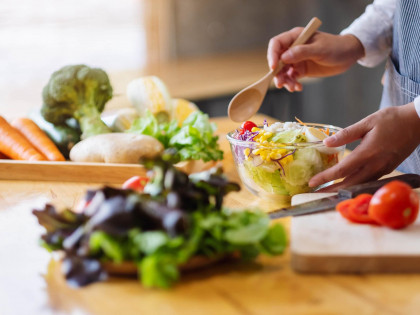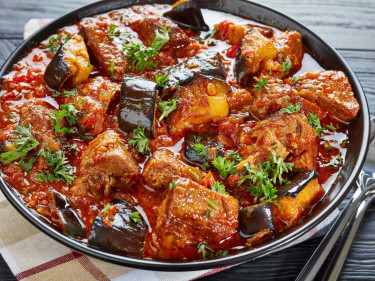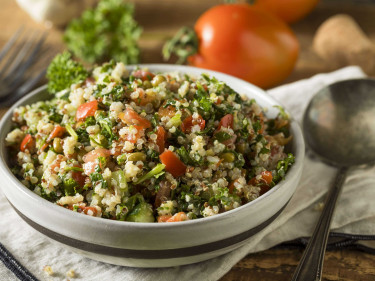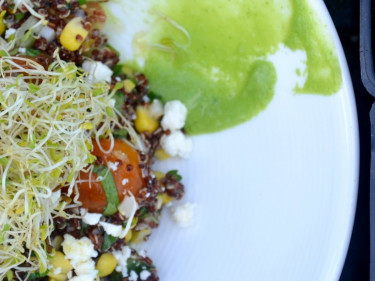In Australia, 1 in 15 people will develop bowel cancer. Bowel cancer is the second most common cancer in Australia, with the prevalence increasing among young adults. A person’s risk of developing bowel cancer is influenced by their family history, genetics and lifestyle factors. Lifestyle factors, including the types of foods you eat, whether you smoke and how physically active you are, contribute to your risk of developing bowel cancer. Additionally, when a person’s weight is above the healthy weight range, especially when a lot of fat is stored around the waist, the risk of developing bowel cancer increases. Making a few changes to your lifestyle can significantly reduce your risk of bowel cancer.
The World Cancer Research Fund International Continuous Update Project looked at the types of foods that increase the risk of developing bowel cancer. They found foods associated with an increased risk include processed meats, alcohol and too much red meat. Foods associated with decreased risk include wholegrains, dairy products (such as milk, but not cheese), fish and vegetables. Australian guidelines recommend that people reduce their intake of red meat, processed meats and alcohol, whilst ensuring that they are getting enough fibre, from wholegrains, fruits and vegetables, to reduce their bowel cancer risk.
Other studies have looked at eating patterns associated with reduced risk of bowel cancer, and found that a Mediterranean diet, which includes high amounts of wholegrains, vegetables, legumes and healthy fats from olive oil and oily fish, can reduce a person’s risk of bowel cancer. Polyphenols found in many fruits, vegetables and olive oil are thought to have a role to play, though further research is needed to understand how.
What to eat to reduce your risk of bowel cancer:
- Include high fibre foods at most, if not all meals. High fibre foods include wholemeal or wholegrain breads, pastas and rice, legumes, fruits and vegetables. For example, ½ cup of chickpeas contains around 6g of fibre, almost a quarter of the recommended 25g of fibre for a woman per day. The recommended amount of fibre for men is 30g per day
- Choose lean protein sources, including chicken, tofu, fish, eggs and legumes
- Include low fat dairy products each day
- Limit red meat to 1-2 serves/ week (1 serve is roughly 100g raw meat)
- Limit processed meats, such as sausages, ham, salami and bacon, and choose less processed meat products or alternatives
- Maintain a healthy weight by eating enough food to meet your daily energy requirements, without exceeding them. If your weight sits above the healthy weight range, try to modify your lifestly to reduce your weight.
- Reduce how much alcohol you drink, and instead choose non-alcoholic, unsweetened drinks



